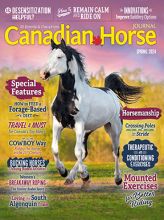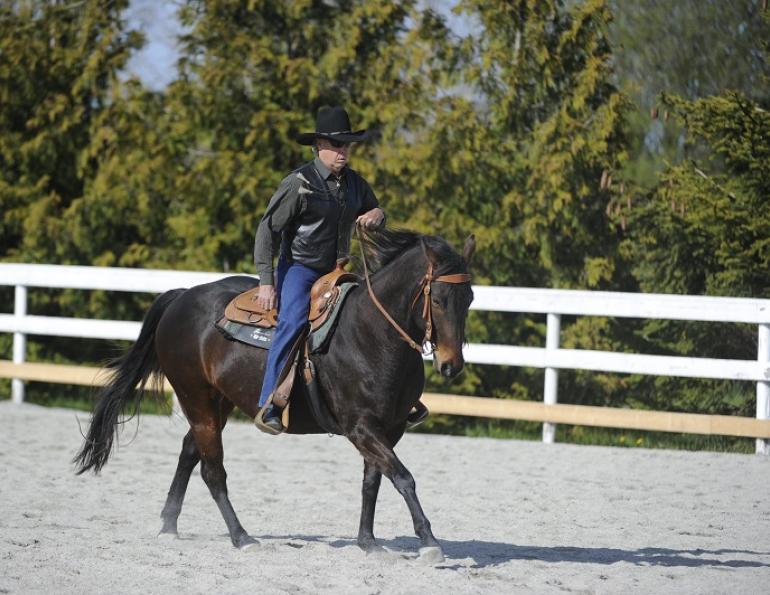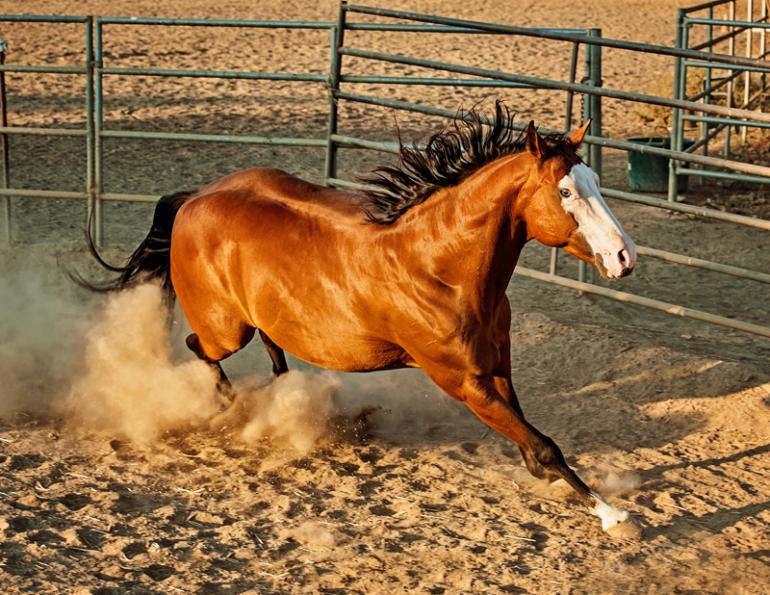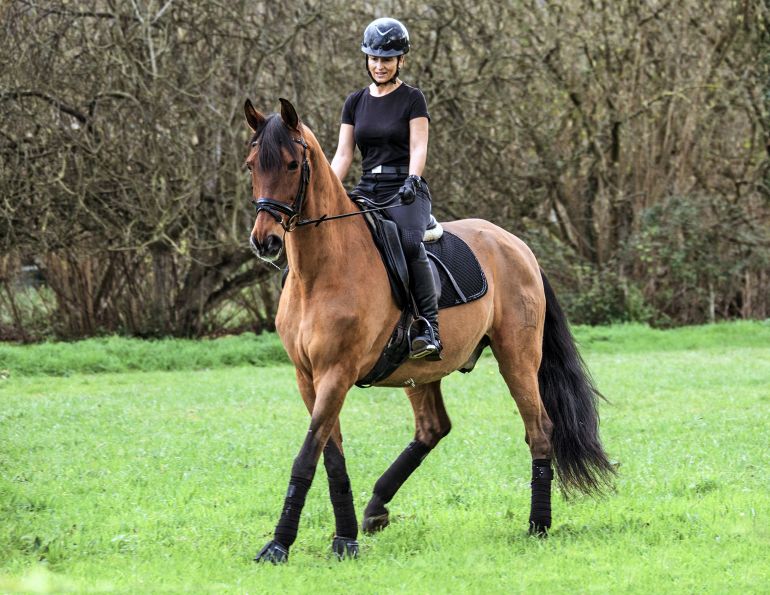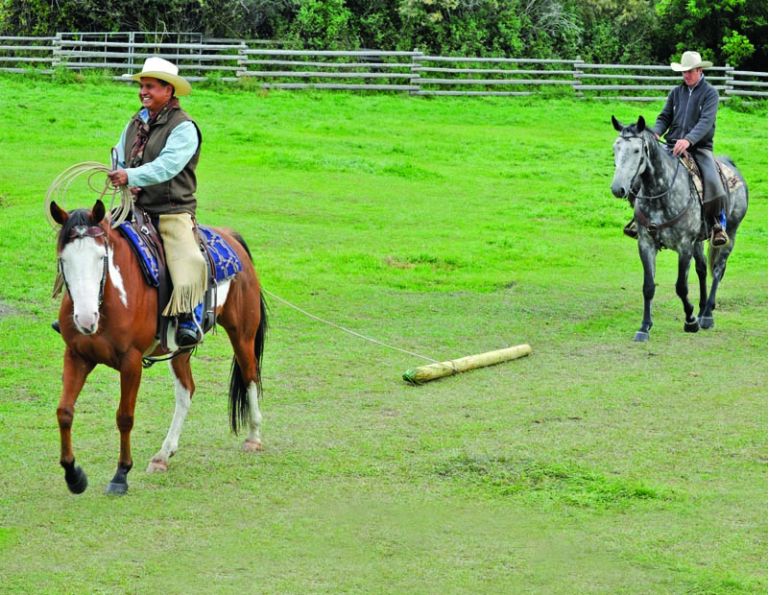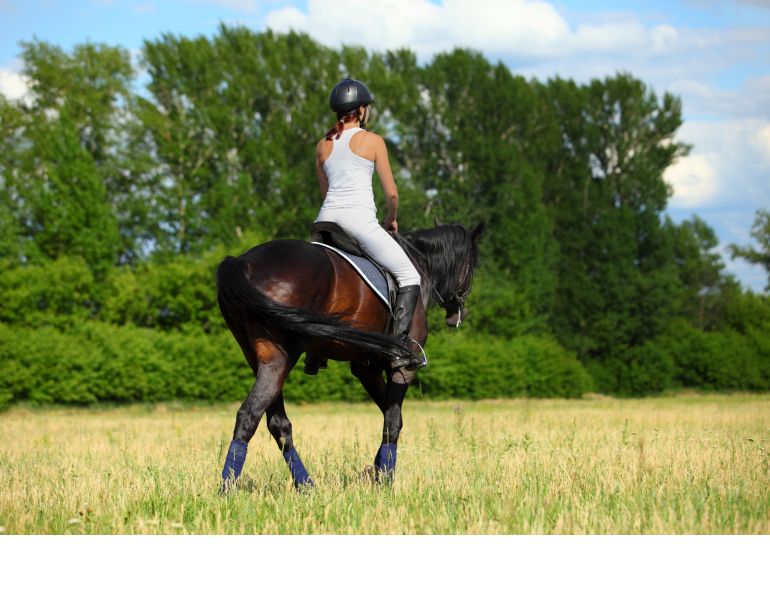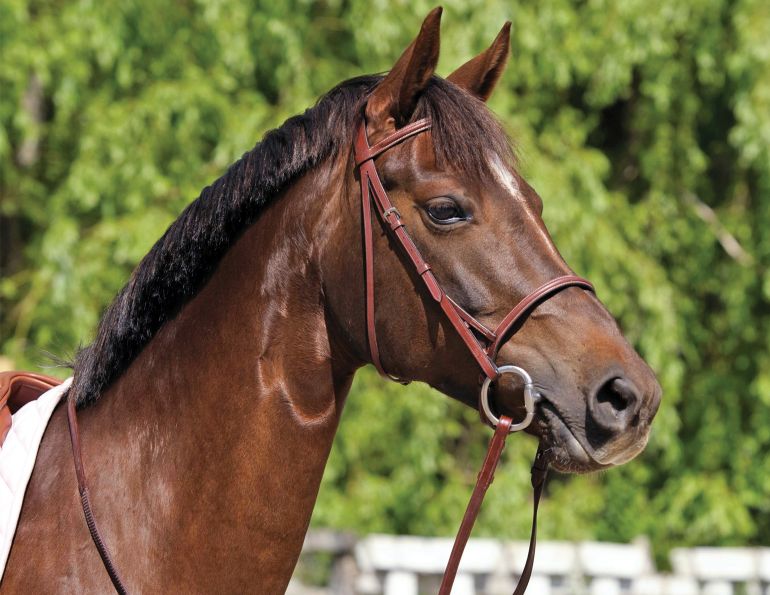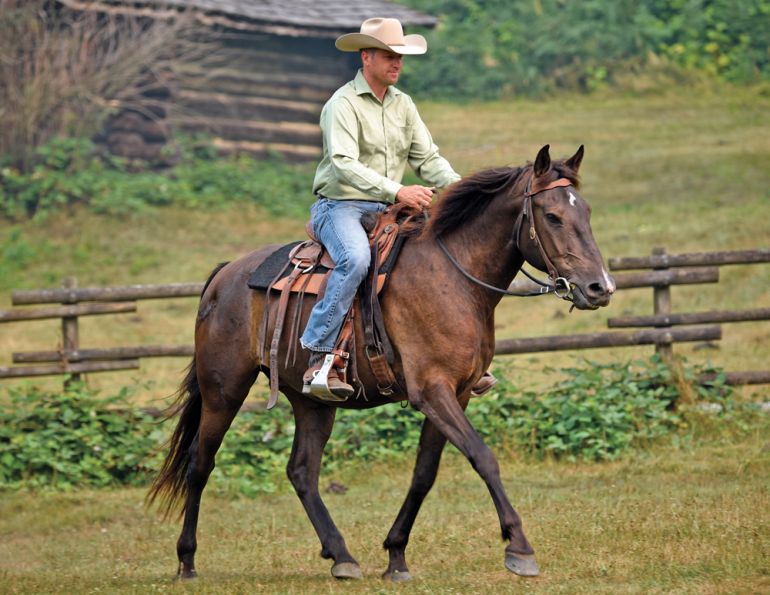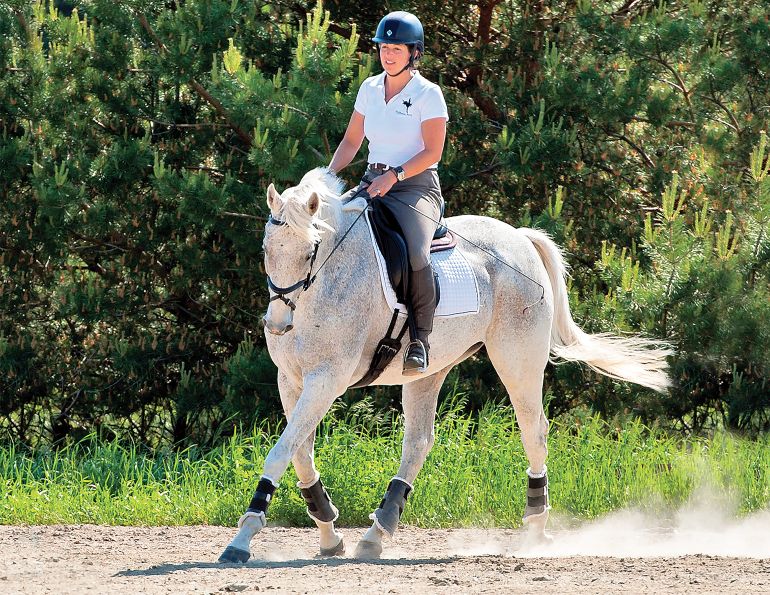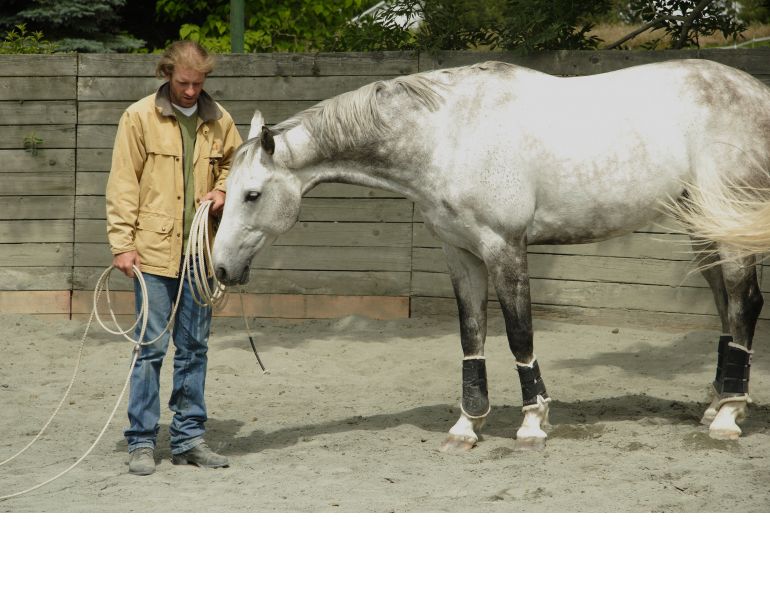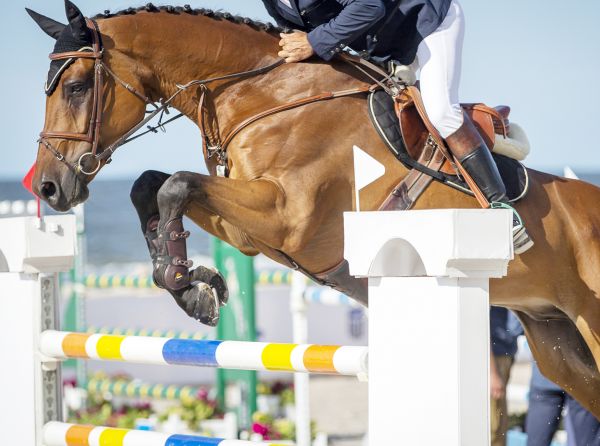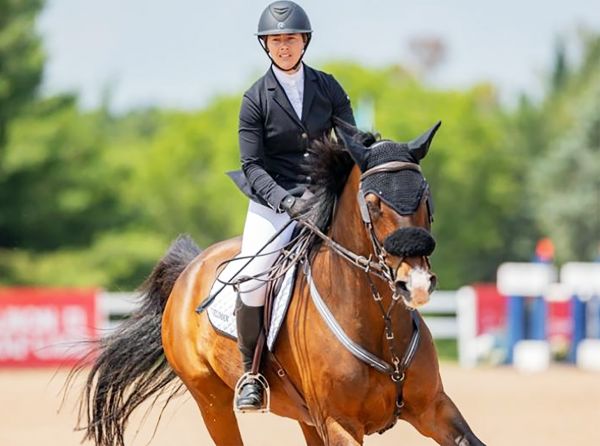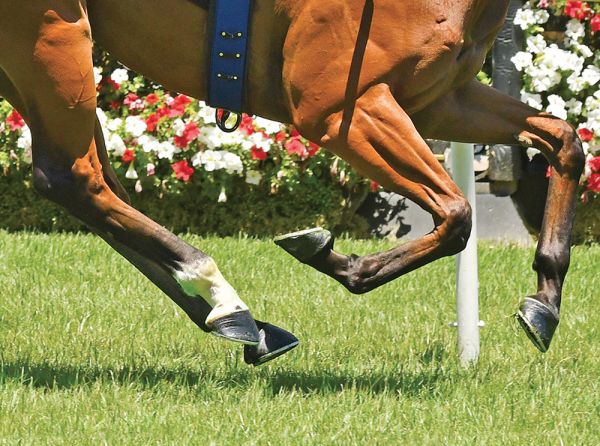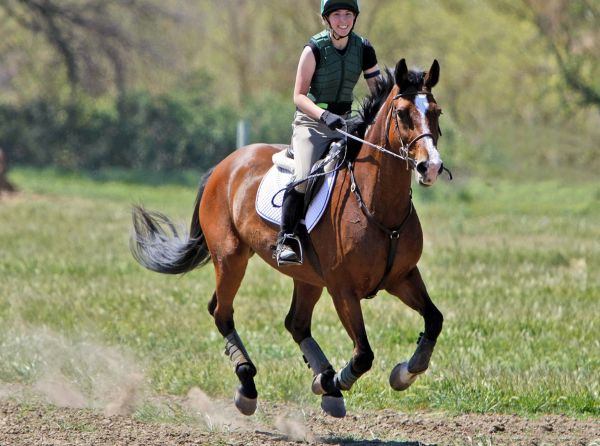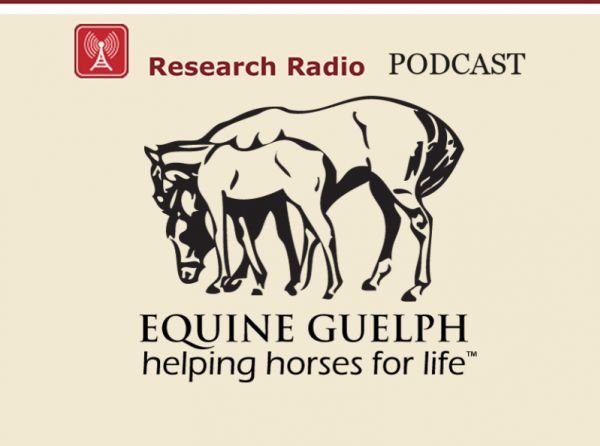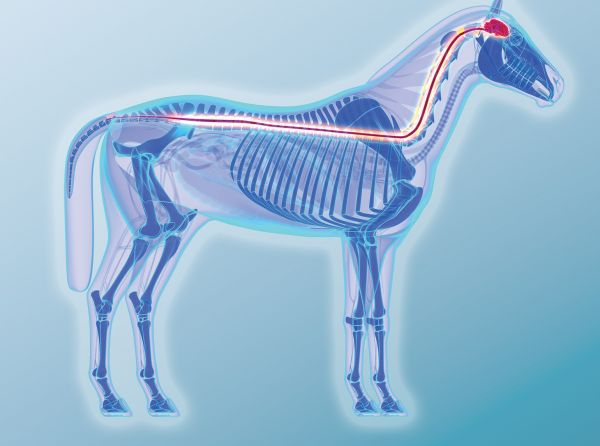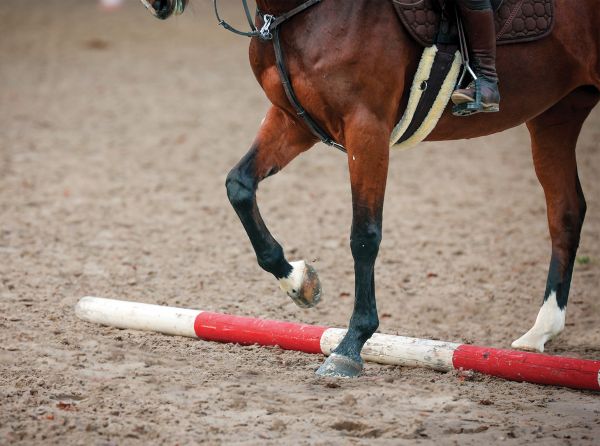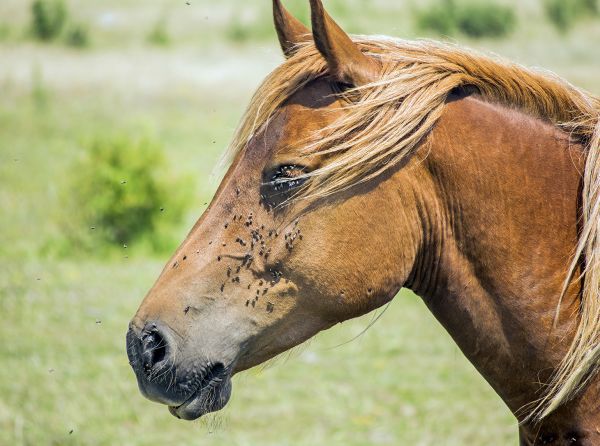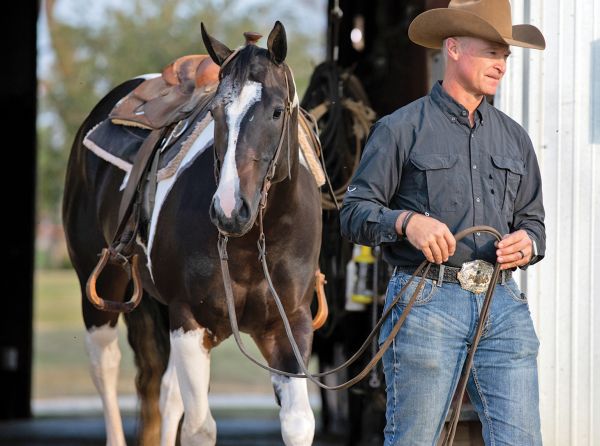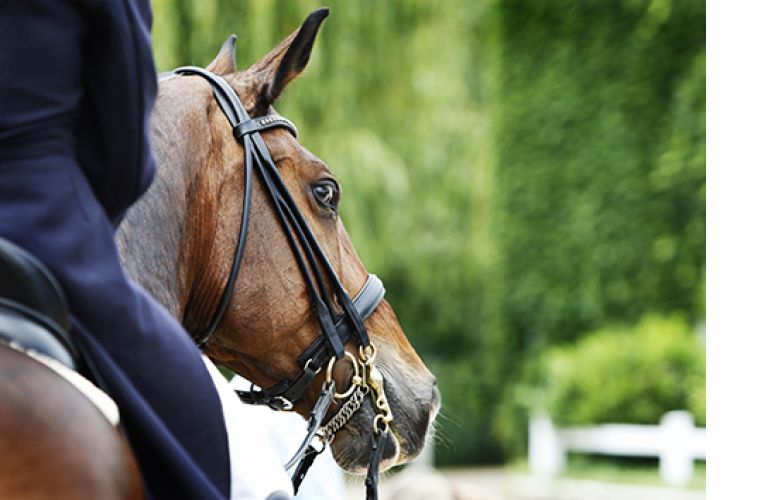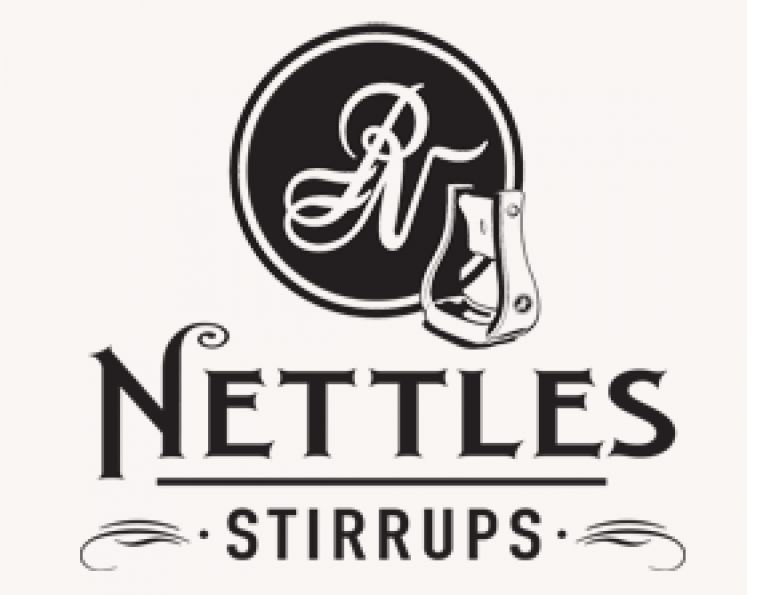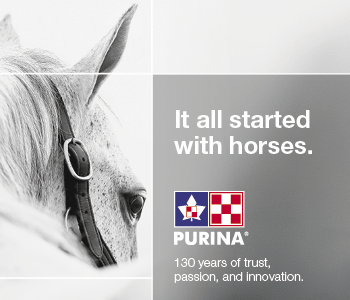By Will Clinging
I have met many horses and people who say “I can’t,” and an equal number who say “I won’t.” What’s the difference?
I just sent home a horse that was full of “I can’t.” She was a very difficult and frustrating horse to work with because her instinctive reactiveness made it very hard for her to be successful. She was a scared horse with a hair trigger and had come to rely solely on her ability to get away. She had a sketchy past with no previous training and had some bad experiences that led her to believe that all interactions with people would be terrifying. This developed into a behaviour pattern that was very deeply rooted.
When she was brought to me she was wild. She had never worn a halter as far as we knew, and she had no plans to wear one now. She was quite defensively intense. The first couple of sessions went as they normally do with any scared horse but I was able to rope her and get a halter on her without too much fuss. As I got to know her better I realized that things with this horse were happening on many different levels.
Before she arrived I convinced the owner to have some Reiki treatments done on her. I often do this with very difficult horses because it helps the horse process its own fears so the handling I do becomes less threatening and the horse can accept training in a more effective way. I have learned over the years that just because you try to teach a horse something doesn’t mean they are willing or even capable of learning it.
This horse was an older mare that had a life of being not just scared but terrified of everything that she could associate with people. That unfortunately was learned behaviour.
She was reluctant to be involved in the training process. Her evasions initially were intense and fairly threatening. As she got to know me the evasions did change and become much less aggressive. She was determined not to be caught. I could rope her and she would stand quietly and let me put the halter on but without that rope around her neck she would not stay. I tried many methods to convince her that being caught was okay. I tried other methods to show her that running away was not okay.

When a horse refuses, it’s important to take note of whether he is saying “I can’t” or “I won’t,” as they are different in terms of consequence and reward. “I won’t” is never acceptable. Photo: Robin Duncan Photography
Neither approach seemed to work. I prefer to work using reward and comfort as a motivator, but because this mare had never had comfort from a human she did not know what it was or that it was available to her.
Her behaviour had become a pattern. It was the only way she knew how to behave. She was not prepared to pay attention; she would watch but was always looking for a way to not be involved and often just looking for an escape route away from the stress that I was presenting and representing. She was not prepared to accept any responsibility for herself or her behaviour, or to learn anything. This insight led me to the theory that because of low self esteem she had no trust in herself to be successful at anything. Self doubt then led to an over reliance on an authority figure to do things for her. For example, when I would throw the rope on her, she was not scared but more relieved because it took the stress of making a decision away from her. I had told her to stand and be caught, therefore she did not have to decide that it was okay to be caught. She basically wanted me to protect her from making a decision. She had learned to rely on the “I can’t,” so I would help her. This just compounded her lack of success. It was out of obedience, not comfort or even willingness, that she would be caught.
The difference between “I can’t” and “I won’t” is in the intention not in the action. Both are a refusal to perform a task. One is seemingly genuine and anxiety based, and one is a deliberate refusal.
The mare I have been telling you about was intelligent but narrow minded and initially incapable of trying something unfamiliar. The anticipation of failure was too great. She was convinced initially that “I can’t” was all she was capable of.
She eventually did start to take some responsibility for herself. We reached the point where she was not really scared of me — she just acted that way. She was not sure how else to act. She had no other behaviour pattern to draw from to find a different way of interacting. At that point the “I can’t” became “I won’t.” “I won’t” is a different ballgame in terms of consequence versus reward. “I won’t” is not acceptable.
Her actions had not changed and she was still reluctant to be involved with me. But “I won’t” meant that there was a change in her behaviour pattern. Recognizing this change in her led me to change my approach also. I stopped helping her. Progress fairly ground to a halt and we were at a stalemate until she was able to start paying attention and stop avoiding the situation. When she decided to pay attention it helped her accept some comfort instead of consequence. It was the water torture technique: “I will annoy you until you deal with me.” When she was prepared to deal with me I stopped being annoying. This changed her level of conscious involvement. Over time and with a lot of support she found more success in small ways. This success supported the change in her behaviour which encouraged her to keep changing her attitude, her evasions, and her ability to find success. Self doubt was now replaced with empowerment.
I did not get much from this mare in terms of training results. A few years ago I would have been very disappointed with her and in myself. Now, though, I am not disappointed; I am proud of her and the little she did accomplish. I am proud that I was the catalyst for the success she found. She will continue to be successful because she is starting to believe in herself. Success is all in how you measure it.
Main article photo: Horses act based on learned behaviour patterns as well as instinct.


